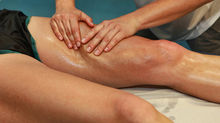Why should I see a Women’s Health Physiotherapist during Pregnancy?
- Hayley Sheather
- Apr 29, 2024
- 3 min read
Regardless of whether you have any pelvic health concerns, I encourage you to link in with a Women’s Health Physiotherapist during your pregnancy. The best time to book an initial appointment is after your first trimester. If you have no concerning pelvic floor symptoms (urinary leaking, constipation, vaginal heaviness or anal incontinence to name a few) this might be at around 16 – 20 weeks. However, remember it is never too late to book an appointment.
There are a number of benefits of seeing a Women’s Health Physiotherapist during pregnancy
To teach you how to correctly activate (and relax) your pelvic floor muscles.
There is strong evidence that pelvic floor muscle training during pregnancy for women who are continent (not leaking) helps to prevent urinary incontinence in late pregnancy and early postpartum (up to 6 months) (1). The gold standard for assessing pelvic floor muscle function is via internal vaginal examination. This allows your Women’s Health Physiotherapist to check strength, endurance, presence of pain, ability to relax your muscles and to assess for prolapse.
To optimise bladder and bowel health.
One common complaint of pregnancy is constipation, linked to the increase in progesterone (2). In addition to this, dietary changes (food cravings and/or aversions), potentially a reduction in regular exercise, use of iron supplements or other medications can further contribute to constipation (2). Untreated constipation and regular straining to pass a bowel motion leads to extra stress on the pelvic floor.
To give appropriate advice and guidance on pregnancy safe exercise.
Australian guidelines for exercise in pregnancy recommend 2.5 – 5 hours of moderate intensity each week, which equates to 30 – 60 minutes of moderate intensity exercise on most, if not all days of the week (3). In addition to this, they recommend muscle strengthening exercises on at least 2 days each week and doing pelvic floor muscle exercises (3).
A Women’s Health Physiotherapist can help guide you on appropriate exercise throughout your pregnancy. Some considerations when prescribing exercise in pregnancy include:
Avoiding exercising on your back after 28 weeks due to the potential of the growing uterus to obstruct venous return (blood flow back to the heart) and therefore blood flow across the placenta (3).
Whilst abdominal separation in pregnancy is considered normal (the connective tissue down the midline needs to stretch to allow room for your growing baby), you may need help modifying certain exercises to ensure no “doming” or “coning” occurs.
Modifying aggravating activities if you are experiencing pregnancy related pelvic girdle pain
At The Studio you have the luxury of attending either private clinical exercise sessions with your Women’s Health Physiotherapist, small group clinical exercise classes or prenatal mat pilates classes following an initial consultation.
To educate you on perineal massage
There is strong evidence that antenatal perineal massage in first time mothers can reduce the risk of tearing by up to 64% (particularly 3rd and 4th degree tears), reduce the need for an episiotomy, and reduce the risk of ongoing perineal pain 3 months post-delivery (4).
To teach you effective pushing technique.
Research suggests that as many as 1 in 3 women actually contract their pelvic floor muscles when pushing or bearing down (5). This is counterproductive. However, if this is identified during pregnancy it can be addressed prior to the onset of labour by practicing effective pushing technique with your Women’s Health Physiotherapist.
To prepare you for the early postpartum recovery.
Often you are pre-occupied preparing for childbirth and the arrival of your new baby that you may not have considered what the first 6 weeks postpartum look like for your own physical recovery. A Women’s Health Physiotherapist can provide advice in late pregnancy on postpartum recovery products, perineal care, healthy bladder and bowel, early low impact exercise and pelvic floor activation.
Please also be aware that The Studio regularly hosts the Born Ready birth course which aims to empower you and your partner towards your best birth.
References
1. Dumoulin C. Adult Conservative Management. Incontinence 7th Edition2023.
2. Shin GH, Toto EL, Schey R. Pregnancy and postpartum bowel changes: constipation and fecal incontinence. Am J Gastroenterol. 2015;110(4):521-9; quiz 30.
3. Brown W. Evidence-based physical activity guidelines for pregnant women In: Health AGDo, editor. 2020.
4. Abdelhakim AM, Eldesouky E, Elmagd IA, Mohammed A, Farag EA, Mohammed AE, et al. Antenatal perineal massage benefits in reducing perineal trauma and postpartum morbidities: a systematic review and meta-analysis of randomized controlled trials. Int Urogynecol J. 2020;31(9):1735-45.
5.Youssef A, Brunelli E, Montaguti E, Di Donna G, Dodaro MG, Bianchini L, et al. Transperineal ultrasound assessment of maternal pelvic floor at term and fetal head engagement. Ultrasound Obstet Gynecol. 2020;56(6):921-7.






























Comments